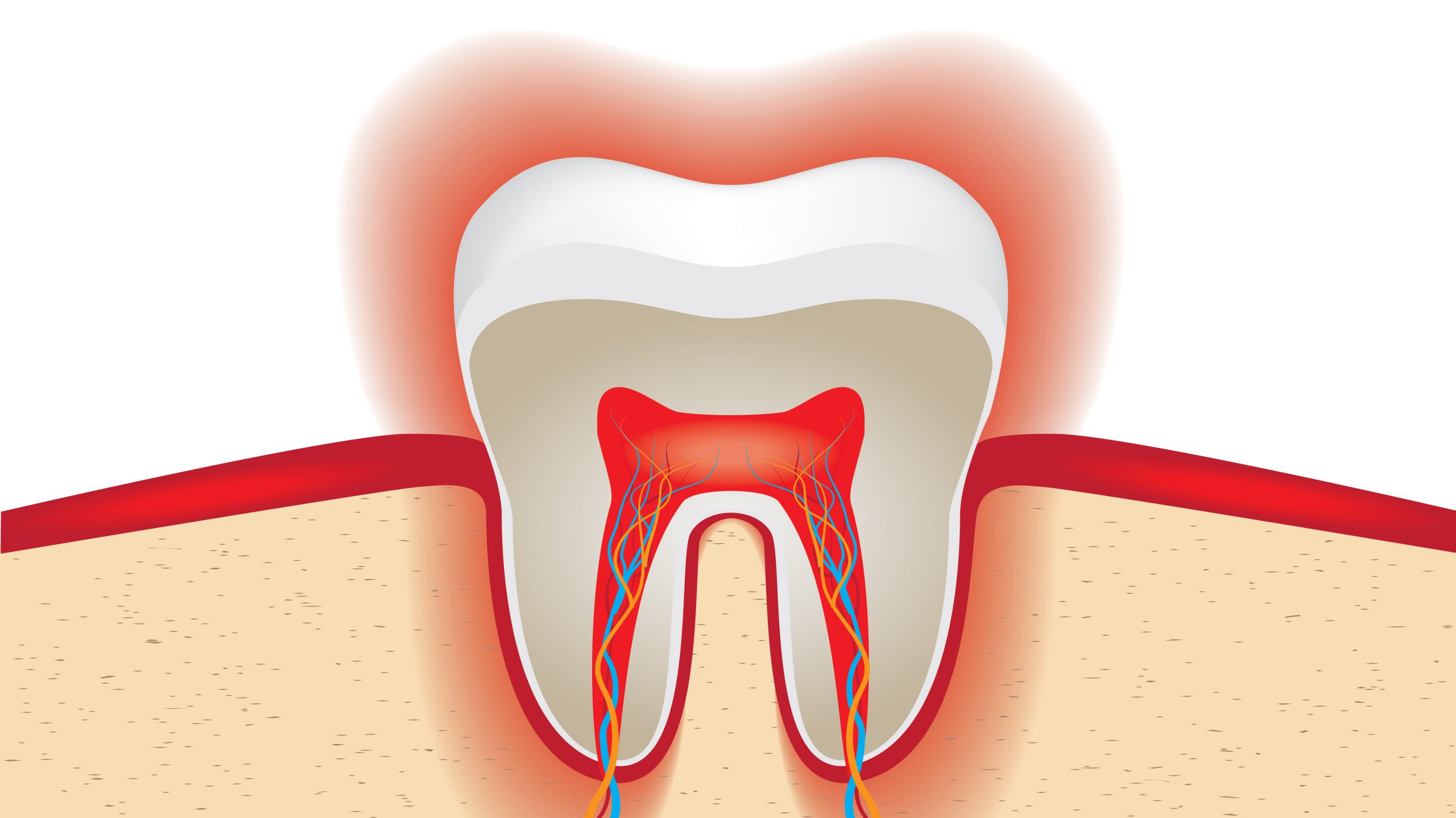Dental sensitivity is a sore subject. It can have a truly negative impact on your day-to-day, causing pain during eating, drinking, and brushing, or making you dread your trips to the dentist. For those who suffer from tooth sensitivity, daily pain is often a reality. However, tooth sensitivity doesn’t have to ruin your life (or your bowl of ice cream).
There are several treatments available for sensitive teeth: Fluoride treatments, treating exposed teeth roots, mouthguards or root canals are all commonly used options your dental office provides.
What Can Cause Tooth Sensitivity?
Though dental sensitivity can be caused by several factors like tooth decay, a chipped tooth, or receding gums caused by gum disease, it’s most commonly caused by worn-down tooth enamel. Reduced tooth enamel can be caused by grinding your teeth, consuming high amounts of sugar and starches, high-acidity foods and drinks, and poor brushing and flossing habits. When enamel is worn away, your teeth are vulnerable to your mouth’s bacteria as well as acid found in foods and drinks affecting the inner tooth laters and causing pain and sensitivity.
Fluoride Treatments for Sensitivity
When you visit your dentist, you can have a fluoride varnish applied to sensitive teeth. The fluoride enters the tooth enamel and makes the tooth hard, preventing cavities and slowing down decay. You can also opt for fluoride toothpaste at home; Dr. Z recommends Sensodyne for best results (without sensitivity-causing whitening products).
Professional Dental Care Options
If your sensitivity is more severe, it’s best to visit your dentist. Dental restorative coverings can be placed over the front surfaces of the teeth to protect them from cold and hot liquids touching the tooth enamel directly. However, it’s not always a permanent solution and may need repairs with normal wear. More extensive dentistry like root canals can be done to ensure a tooth is no longer sensitive. The process removes the nerves from inside the tooth, thus ensuring that the tooth will no longer have feeling in it. This is seen by dentists as a last resort, and not every patient may be eligible for it.
Simple things like adjusting a recent crown or filling can cure sensitivity in a tooth. If the occlusal bite on a tooth or recent dentistry is not correct, it may cause sensitivity. Adjusting this is simple, quick, and requires no anesthesia. It is oftentimes the reason for many patients’ sensitivity and can instantly feel better, in many cases, after making an adjustment.
Getting the Best Dental Care for Tooth Sensitivity
Tooth sensitivity isn’t just uncomfortable, it can have a lasting impact on the quality of your oral health. If your pain and sensitivity prevent you from brushing or flossing properly or receiving routine dental care, problems can persist and worsen with time. Fortunately, there are effective, non-invasive ways to shield the teeth and reduce discomfort while eating, drinking, brushing, and receiving dental treatments.
Are you tired of dental pain and ready to reduce your tooth sensitivity? Z Dentistry can help. Contact us today to learn more about how to assist sensitive teeth.
